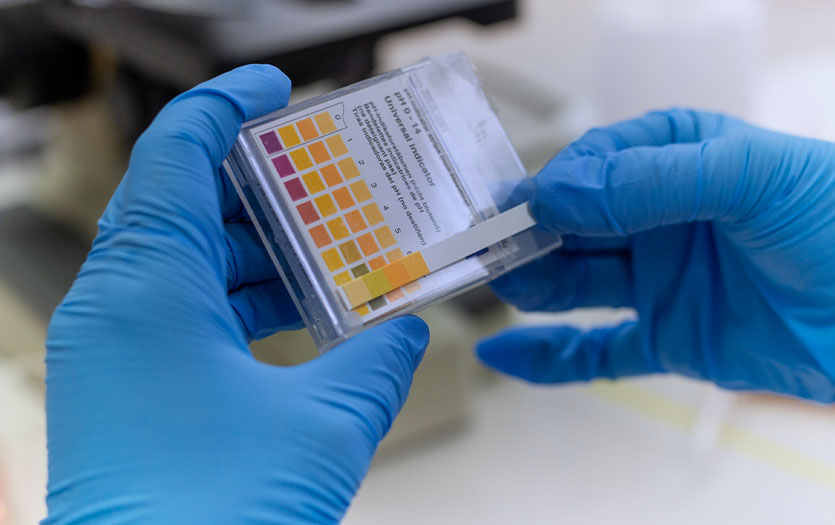
Multiple sclerosis (MS) is a disease that affects the central nervous system—the brain and spinal cord—and the nerves to the eyes. For reference, we’ll review the symptoms and some basic strategies for treating the condition.
What are the symptoms of MS?
Your nerve cells have a protective covering called myelin. Without myelin, the brain and spinal cord can't communicate with the nerves in the rest of your body. MS causes areas in the brain and spinal cord to get inflamed and slowly damages the myelin and nerves in patches. These patches of damage are called lesions.
Symptoms vary from person to person. MS can cause problems with muscle strength, vision, balance, mood and thinking. It may also cause fatigue, pain, muscle spasms numbness and tingling.
MS tends to get worse over time, but usually, this happens slowly. It's hard to predict how MS will affect people, as each experience is unique. Some people's lives won't change much with MS, while others may lose the ability to walk or do everyday tasks as the disease worsens.
Treatment
There is no cure for MS, but there are strategies that can help manage the symptoms of the condition.
Medications
There are different types of medicines used to treat MS.
Disease-modifying drugs (DMDs)
Damage to the nervous system may occur early in the disease, even while symptoms are still mild. Early treatment with DMDs may help prevent or delay some of this damage.
DMDs may also:
- Prevent attacks (relapses).
- Reduce new lesions in the brain and spinal cord.
- Reduce or slow down the progression of MS.
DMDs may be:
- Injected into a vein (infused) once a month, a few times a year or yearly.
- Taken as a pill 1 or 2 times a day.
- Given as a shot 1 to 3 times a week.
Talk to your doctor about what DMD is right for you. You and your doctor may consider:
- The type of your MS.
- Your concerns about risks and side effects.
- How well the medicine works.
- The cost of the medicine.
- How you prefer to take the medicine (shot, pill or IV infusion).
- If you have attacks or new lesions seen on an MRI.
- Whether you plan to get pregnant, can become pregnant, can get someone pregnant or are breastfeeding.
You might also like to explore medications that can treat attacks to help you recover faster or those used to treat ongoing symptoms, which can help with symptoms like depression, nerve pain, fatigue and bladder problems.
Other therapies to treat MS
Therapy is used to help improve specific skills that are lost or damaged due to MS, as the disease can cause problems with muscle control and strength, vision and balance. It can also affect your thinking. Your therapy needs may change over time as your symptoms change.
There are many types of therapy that can help you function better when you have MS. They include:
Physical therapy
This therapy uses exercise of all types to help you stay as independent as possible. Your therapist will help you find which exercises are best for you. Exercise and physical activity are good for all people who have MS, even as the disease gets worse.
Exercises will:
- Stretch and strengthen muscles.
- Get your heart and lungs working harder.
- Help you with your balance and ability to move.
You'll also learn to cool off between exercises since heat can worsen symptoms.
Occupational therapy
This therapy teaches you how to be as independent as possible. You can learn how to use equipment or aids to help with your daily life, including eating, getting dressed, bathing and other tasks.
Occupational therapy can also help patients learn to conserve energy and safely use a cane, walker or wheelchair.
Speech therapy
MS can affect the nerves that help you to talk and swallow. With therapy, you may be able to:
- Reduce long pauses or slurring.
- Reduce the nasal sound that can happen when your facial muscles get too relaxed.
- Improve your speech patterns and the way you pronounce words.
- Learn other communication methods, such as with a phone or alphabet cards.
- Learn what foods and eating habits can help if it's hard to swallow.
Cognitive retraining
"Cognitive" refers to the brain's ability to remember, solve problems and make decisions. MS can make these things harder. Therapy can often retrain your brain to find other ways to do these tasks. For example, you may learn to rely on other ways to remember and stay organized, like using a computer, cell phone, notebook or filing system.
Complementary and alternative medicine to treat MS
Many complementary and alternative medicine (CAM) treatments have been proposed for people who have MS. Research hasn't shown all the proposed CAM treatments to be effective or safe for people who have MS, but some treatments may help relieve certain symptoms. For example, some forms of marijuana may help with muscle stiffness (spasticity) and pain.
A person with MS may benefit from safe CAM treatments like acupuncture, massage therapy, mindfulness or yoga along with standard medical treatment.
It’s important to talk to your care team to develop the best combination of therapies and medications to address your unique symptoms.
To learn more about providers at Parkview who treat multiple sclerosis, visit parkview.com/neuro. A physician referral is needed for you or a loved one with MS to be assessed by Parkview Neurosciences. Ask your provider if a visit with Parkview Neurosciences is appropriate for you.
Copyrighted material adapted with permission from Healthwise, Incorporated. This information does not replace the advice of a doctor.



